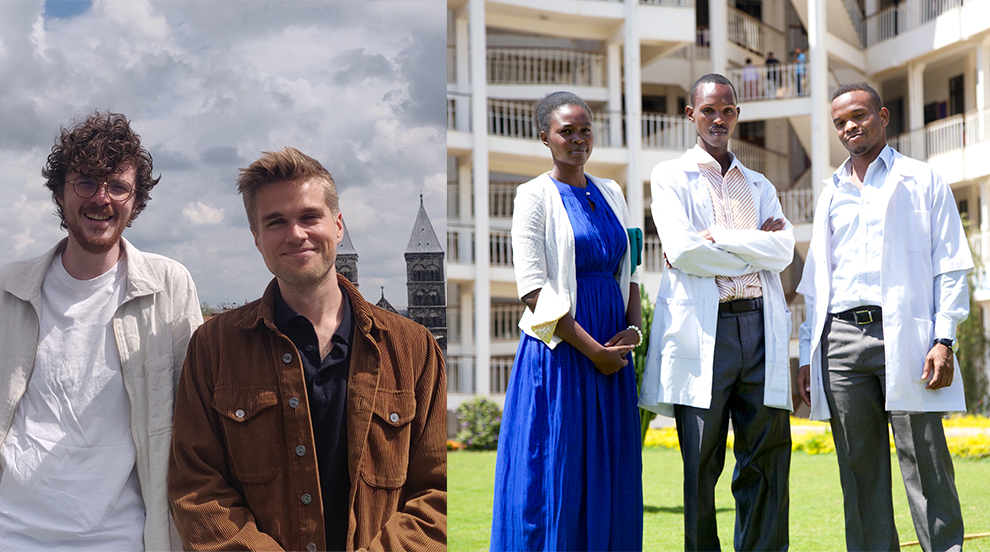Education for all – can the LTH students’ business model be part of the solution?
Access to education is one of the UN’s Sustainable Development Goals. Goal 4: Quality Education describes education as a human right. Can student loans be a solution to support higher education in developing countries?
– Published 27 May 2021

This question is asked by LTH students Carl Johansson Johansson and Jacob Lundborg Ander in their Master Thesis project in Innovation Engineering – a degree project that they are now ready to present.
Carl Johansson Johansson and Jacob Lundborg Ander have chosen to work with a business model for financing higher education in Tanzania. They have collaborated with the Swedish organization Help to Help which awards scholarships to students in East Africa to enable more people to receive a university education.
“In our project, we have investigated whether student loans would be a better funding model than scholarships,” explain Carl Johansson and Jacob Lundborg Ander.
The students believe that an organization that offers student loans has a better chance of establishing financial stability in the future, and does not need to rely on outside capital to the same extent as is the case with scholarship organizations.
“Student loans could mean that university education funding would have circular financing – when the loans are repaid, they finance new loans so that more people can study at university. We have focused a lot on the balance between economic sustainability for the organization that lends money, and good terms for the students to who take out the loans.”
Interviewed students in Tanzania
In order to understand the challenges students in East Africa have when funding their studies, Carl Johansson and Jacob Lundborg Ander interviewed students in Tanzania.
“Students in Tanzania have few options for financing their studies. We have combined that information with an analysis of different lending models to determine the financial outcome if Help to Help offered study loans instead of scholarships.”
Their project has resulted in a couple of proposals for the design of student loans that they think could function for both the lending organization and for the students.
“If we have made a little contribution to making it easier to go to university in East Africa in the future, we will be quite happy.”
Positive lessons learned
After completing the project, Carl Johansson and Jacob Lundborg Ander have learned some positive lessons.
“One thing we have taken with us is that the people we met during our time in Tanzania were incredibly cooperative. When we asked for help with contacts, or to participate in an interview, it was almost always the case that people had the time and knowledge to share. We also learned that communication is the alpha and omega, both between ourselves and those who we were working with. When we had an open and honest dialogue, the results were good and the mood happier.”
Last but not least, they were able to celebrate success.
“It’s an incredibly good practice to acknowledge milestones and celebrate them,” both LTH students agree.
After completing their Master’s degrees, both students will set off for Stockholm. Carl Johansson will start working as a management trainee at Storytel and Jacob Lundborg Ander has his sights set on working with data analysis.
Master Thesis Projects in Innovation Engineering will be presented 2-3 June
In addition to a sustainable business model for higher education, Innovation Technology’s graduates have addressed issues such as:
- How will EU’s new taxonomy affect sustainable investments?
- What kind of technology will Generation Z want to use by the year 2030 to interact with companies during their “pre-purchase phase”?
- Is it possible to connect carbon dioxide emission calculations with financial transactions to follow-up in one’s personal banking app?
- How can companies in the startup phase evaluate their environmental impact based on the UN’s Sustainability Development Goals?
- How is the market and its businesses affected by additive manufacturing – and what significance does additive manufacturing have on the business models?
